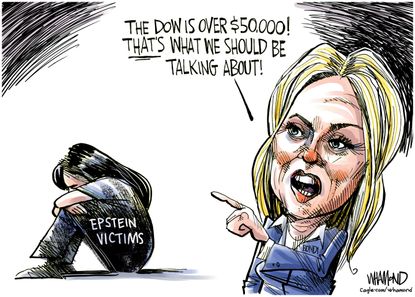Constraining China
vs.
Combating Climate Change
/2024/06/29/1719670561735.gif?w=1920)
Illustration: Aïda Amer/Axios
Some of the world's largest economies want to speed up the green transition — unless doing so makes China more influential.
Why it matters: Cheap electric cars made in China might convince price-conscious consumers to ditch their gas guzzlers sooner. But politicians in Western countries also want to protect their own clean energy industries, in which they're investing billions.
What they're saying: "We want to contain China, even if it comes at the expense of addressing the world's climate change crisis," Stephen Roach, the former chair of Morgan Stanley Asia, tells Axios.
- "The politicians are making a choice, and you can often slow down your climate progress by prioritizing industrial goals," Bill Gates told Semafor last week.
What's happening: In recent weeks, Canada and Europe have joined the U.S. in pushing back against imported Chinese electric cars.
- Few of these cars are exported to the U.S. and Canada now. President Biden's new triple-digit tariff suggests U.S. officials want to keep it that way.
- Canadian Deputy Prime Minister Chrystia Freeland said last week that an oversupply in China had "undermined EV producers around the world."
- "There is no importing our way to Net Zero," one Canadian union leader told politicians.
Europe, Canada and the U.S. say the Chinese government has supported its clean energy industries with large subsidies that allow its companies to sell products, like electric cars, for cheap.
- They warn a global glut of low-priced electric vehicles makes it difficult for other countries' industries to compete.
- "The EU's green transition cannot be based on unfair imports at the expense of EU industry," the European Commission said in a statement.
"What we're facing globally is a game of protectionist musical chairs," Scott Kennedy, a senior adviser at the Center for Strategic and International Studies.
- "Countries are racing to impose tariffs before others. They don't want to be the last ones standing unprotected, receiving China's underpriced vehicles," Kennedy said.
Where it stands: Western governments have recently started unleashing large incentives for clean technology, including electric cars.
- But China — the world's largest exporter of cars last year, thanks to EVs — started ramping up subsidies in these industries over a decade ago.
- Since 2009, China spent a cumulative $230 billion in subsidies for its electric car industry alone, according to Kennedy — an amount his think tank warns is conservative.
- The average price of an electric car in China was less than half that in Europe and the U.S. in 2023, according to auto research firm JATO.
The big picture: "The supply to drive a rapid global transition in line Paris agreement targets exists now in China," Lauri Myllyvirta, a fellow at the Asia Society Policy Institute, tells Axios.
- But "finding the balance between utilizing China's prowess at low cost manufacturing," making sure China does not dominate supply chains, and developing domestic industry is not easy, Myllyvirta adds.
By the numbers: China's production of electric vehicle batteries and battery components was four times larger than global demand last year, according to the International Energy Agency.
- In 2022, China accounted for about 90% of the amount spent on clean energy investment worldwide, the IEA said.



No comments:
Post a Comment